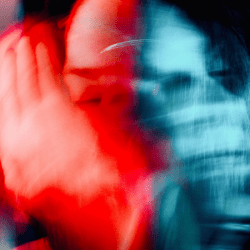In recognition of the importance of Suicide Prevention Week, we’re looking at a few important resources available to those working in an industry which is all to frequently impacted by issues surrounding mental health.
Guest post by Randi Zimmerman of the Symphonic Blog
Talking about mental health has become increasingly commonplace to talk about in every industry. Even so, suicide is a topic often glossed over until it happens to someone you love. We understand the importance of open conversation and the urgency of keeping it that way, now and for future generations to come. This week is National Suicide Prevention Week, and we’re taking this time to provide resources to try and aid the conversation, provide support, and offer a safe space for anyone who needs it.
Trevor Lifeline
The Trevor Project is the leading national organization providing crisis intervention and suicide prevention services to lesbian, gay, bisexual, transgender, queer, and questioning (LGBTQ) young people under 25.
The TrevorLifeline is a crisis intervention and suicide prevention phone service available 24/7 at 1-866-488-7386. TrevorText is available by texting “START” to 678678.
SAMHSA’s Suicide Prevention Resource Center
SAMHSA’s SPRC provides accurate data, up-to-date research, and knowledge of effective strategies and interventions that are essential to our ability to prevent suicide. With it you can find programs, toolkits, fact sheets, and other resources to help you take effective action. Visit their website right here.
Backline
Backline connects music industry professionals and their families with mental health and wellness resources–streamlining access to a network of trusted organizations and care providers that specifically understand this line of work. Backline Case Management is still available during the COVID-19 crisis. Their case managers will work one-on-one with you to provide you with the resources you need to keep going.
Phantogram and the American Foundation for Suicide Prevention
The New York-based electro-pop group Phantogram teamed up with the American Foundation for Suicide Prevention after singer Sarah Barthel’s sister Becky took her life in 2016. Since then, the band has donated $1 from every ticket sale for a series of shows to the American Foundation for Suicide Prevention, and has reached over $68k so far. (Click here to donate.)
“Today, and every day, we’re reminded of the opportunity each one of us has to make a difference in someone else’s life – whether it’s reaching out to someone who needs help, getting care yourself, or supporting organizations on the frontlines of saving lives.” – Phantogram

The American Foundation for Suicide Prevention (AFSP) is a voluntary health organization that gives those affected by suicide a nationwide community empowered by research, education and advocacy to take action against this leading cause of death. // Are you or someone you know in a crisis? Call 800-273-8255 or text TALK to 741741.
AFSP is dedicated to saving lives and bringing hope to those affected by suicide. AFSP creates a culture that’s smart about mental health by engaging in the following core strategies:
- Funding scientific research
- Educating the public about mental health and suicide prevention
- Advocating for public policies in mental health and suicide prevention
- Supporting survivors of suicide loss and those affected by suicide
Learn more about AFSP here.
MusiCares
MusiCares provides a safety net of critical assistance for music people in times of need. Their services and resources cover a wide range of financial, medical, and personal emergencies, and each case is treated with integrity and confidentiality.
Additionally, MusiCares focuses the resources and attention of the music industry on human service issues that directly impact the health and welfare of the music community. Visit the website and learn more here.
—
You Are Not Alone.
In a 2018 study from the Music Industry Research Association, 50 percent of musicians reported battling symptoms of depression, compared with less than 25 percent of the general adult population. Nearly 12 percent reported having suicidal thoughts — nearly four times the general population.
All of us have experienced the damage done by the pressures of this industry to some of our greatest minds. From Avicii to Mac Miller, these issues affect everyone and anyone. Through de-stigmatizing the way we talk about mental health, we reassure those suffering from it that they can feel comfortable asking for help when they need it. Everyone should have the resources to reach out without judgement and move forward with confidence and hope for a better future.
Never be afraid to ask for help. If you need it, we’re here to give it.








